Causes Of WWI And The Incomplete Finality Of War
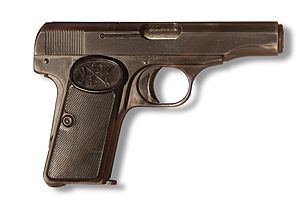 What started World War I? Was it the Zimmermann Telegram? Was it the shots fired by a seventeen year old male? Or is this oversimplification of a more complex chain of events? Why are the pages of history so blurred?
What started World War I? Was it the Zimmermann Telegram? Was it the shots fired by a seventeen year old male? Or is this oversimplification of a more complex chain of events? Why are the pages of history so blurred?
Based on the information provided by Wikipedia, Gavrilo Princip [1894 – 1918, aged 23] was a bright Bosnian Serb that was raised under difficult circumstances, more than likely brought on by poverty. Other complexities would bring strife in his short life, including the annexation of Bosnia-Herzegovina into the Austro-Hungarian Empire.
The Serbs detested this arrangement, thus inflaming Pan-Slav nationalism within the Serbian population. The young Princip belonged to a group that supported a movement known as Young Bosnia, where the members were mostly school students.
On October 6, 1908, Bosnia-Herzegovina became part of the Austro-Hungarian Empire, despite the tension and unrest that it generated. This event is known as the Bosnian Crisis.
Young Bosnia
Danilo Ilić (1891 – February 3, 1915)…..Executed.
Veljko Čubrilović (July 1, 1886 – February 3, 1915)…..Executed.
Miško Jovanović (executed February 3, 1915)…..Executed.
Nedeljko Čabrinović (February 2, 1895 – January 20, 1916)…..Tossed bomb.
Vladimir Gaćinović (May 25, 1890 – August 11, 1917)…..Poisoned.
Trifko Grabež (June 1895 – February 1918)…..Arrested. Died of tuberculosis.
Gavrilo Princip (July 25, 1894 – April 28, 1918)…..Fired the fatal shots.
Muhamed Mehmedbašić (1886 – May 29, 1943)…..Escaped. Killed by Ustaše.
Cvjetko Popović (1896 – June 9, 1980)…..Arrested. Professor lived until 1980.
Vaso Čubrilović (January 14, 1897 – June 11, 1990)…..Arrested. Professor lived until 1990.
Archduke Franz Ferdinand, Duchess Sophie, And A Tragic Romance
It was the governor-general who invited Franz Ferdinand to attend army maneuvers. It was the governor who interfered with the instructions given to the driver. It was the governor who assured the Archduke that all was safe. It was the same man who arrested 5,500 Serb citizens after the assassination. It was Governor Oskar Potiorek who neglected the safety of the royal couple and jeopardized their lives.
Previously, former Bosnian Governor Varešanin survived an attempted assassination by Bogdan Žerajić, a former member of Young Bosnia. After failing the attempt, Žerajić killed himself with the last bullet. Princip supposedly visited his grave and promised revenge.
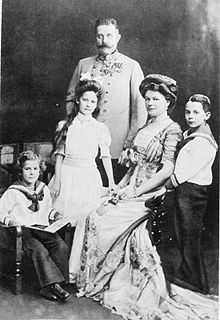 Franz Ferdinand, the heir presumptive to the Austro-Hungarian throne, was well aware of the danger in Bosnia. Sarajevo was not exactly friendly towards Hapsburg visitors. Franz Ferdinand desperately tried to get out of the trip several times; nevertheless, his pleas fell on deaf ears.
Franz Ferdinand, the heir presumptive to the Austro-Hungarian throne, was well aware of the danger in Bosnia. Sarajevo was not exactly friendly towards Hapsburg visitors. Franz Ferdinand desperately tried to get out of the trip several times; nevertheless, his pleas fell on deaf ears.
His faithful wife Sophie insisted on being by his side, even though she risked danger at every corner. She did not want to leave the Archduke alone. What a tragic ending, with the children dealing with the trauma of losing their parents plus the awful experience of their property being confiscated.
Because their mother was not of royal blood, they lost everything.
Ironically, the Archduke was against the annexation of Serbia and wanted to improve relations with the neighboring countries. This could have been why he was a target.
The automobile that determined the fate of Archduke Franz Ferdinand was a dark gray 1911 Gräf & Stift Double Phaeton; it was owned by Count Franz von Harrach, and the royal couple were riding with him in the back seat of the car during the assassination. The luxury limousine (32 horsepower) was equipped with a four cylinder engine.
Upon arrival by train on a clear Sunday morning (at 10:00 am), the royal couple took an automobile into the city of Sarajevo. The top was rolled back on the limousine. On the first attempt to kill the Archduke, the perpetrator got nervous and backed out.
Unknown to the doomed royal visitors, there was a gang (of seven) that was waiting for them, dispersed along the Appel Quay (now the E761). All were armed with bombs and pistols. They were not professionals but had received some training.
At 10:15 am, the six-car motorcade passed the police station and a grenade was tossed by Nedeljko Čabrinović at the Archduke’s car, but the driver sped up and avoided calamity. Several passengers were injured by the bomb and some twenty or so in the crowd were wounded by the scattered shrapnel.
“Čabrinović swallowed a cyanide capsule and jumped into the River Miljacka to make sure he died. The cyanide pill was expired and made him sick, but failed to kill him and the River Miljacka was only 4 inches deep.” Čabrinović was detained by police. (Princip also swallowed the cyanide before getting detained, although it didn’t kill him either.)
After the bombing incident, the conspirators lost another chance.
Afterwards, the Archduke was scheduled to attend an event at city hall and he was very reluctant to move forward with the official ceremony planned by Potiorek. Obviously, Franz Ferdinand was angry over the bombing, yet he delivered the speech and gave his cordial greetings.
A witness would later recall that “we knew when he went out he would certainly be killed.”
Leopold Loyka, the driver, was instructed to follow the others to the hospital en route to visit the victims of the bombing, or more precisely to visit Lieutenant Erich von Merizzi. Loyka took a right (wrong) turn on the way to the hospital. After realizing his mistake, he applied the brake and made an attempt to reverse the car. The gears jammed and the car engine died. The car was to approach the north side of the Latin Bridge.
Princip was near Moritz Schiller’s Delicatessen when the Archduke’s car passed by. He then stepped forward and fired two bullets (some heard three shots) at a distance of five feet with his pistol; the Archduke was shot in the neck and the Duchess was shot in the abdomen area. Both died before 11:00 am. The two lifeless bodies laying beside each other made for a grim afternoon. Along with the luncheon, there was a musical which included “No Life Without Love”, a waltz with an appropriate title.
Gavrilo Princip Assassinated The Archduke On St Vitus Day
Gavrilo Princip, the son of a postman, stated during the trial: “I am a Yugoslav nationalist, aiming for the unification of all Yugoslavs, and I do not care what form of state, but it must be freed from Austria.” Princip was given the maximum of 20 years in prison.
He died of tuberculosis in prison, nearly four years after the shooting. His body was emaciated and one arm was amputated before his death. It was reported that he and a few friends had been diagnosed with tuberculosis ‘before’ the assassination.
Oddly enough, Franz Ferdinand battled tuberculosis during his lifetime.
“An FN M1910, serial number 19074, chambered in .380 ACP (Automatic Colt Pistol) was the handgun used by Gavrilo Princip.” The pistol was confiscated by the authorities.
It was June 28, 1914. Princip perpetuated his name into the history books after assassinating the Austrian Archduke Franz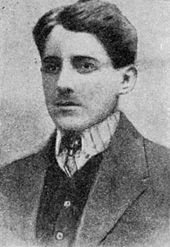 Ferdinand and his wife Duchess Sophie in Sarajevo, the capital of Bosnia and Herzegovina. This event allegedly led to World War I and contributed to the demise of the Austro-Hungarian Empire. Bosnia and Herzegovina were consolidated into Yugoslavia.
Ferdinand and his wife Duchess Sophie in Sarajevo, the capital of Bosnia and Herzegovina. This event allegedly led to World War I and contributed to the demise of the Austro-Hungarian Empire. Bosnia and Herzegovina were consolidated into Yugoslavia.
“It was not a coincidence that Gavrilo Princip assassinated the Austro-Hungarian Archduke Franz Ferdinand on Vidovdan, triggering the First World War.” June 28 or Vidovdan “is designated as a memorial day to Saint Prince Lazar and the Serbian holy martyrs who gave their lives to defend their faith during the epic Battle of Kosovo against Ottoman Empire on June 28, 1389.”
The Eurasian Balkan Peninsula is and has always been a geopolitical hotbed. Geopolitical interests in the Balkan region lit the fuse which started both WWI and WWII. A point to be considered is the coveted access to the Adriatic Sea. Russia and Austria-Hungary were in conflict with each other.
There are similarities with the current crisis in Ukraine and Crimea one hundred years later.
The assassination was not entirely the random action of one individual; it was a deliberate plan backed by a secret society called the Black Hand. “The objective of the Black Hand was to realize the national ideal, the unification of all Serbs.” None of these men had any idea that the assassination would trigger a world war.
Moreover, the assassination was used as a political movement to gather support for the declining Hapsburg Empire, thus precipitating Austria-Hungary’s declaration of war against Serbia, or as it’s referred to— ‘the day of reckoning’. Ultimately, the Austrians, being fully backed by the Germans and given a full blank check, demanded war on Serbia by giving them an ultimatum. That ultimatum was war.
Threats were made on Serbia. The reply from Serbia was rejected by Austria, and Russia was unwillingly forced into war that it was ill prepared for. In July of 1914, war was on the table for all parties involved.
Balkan Wars: The Prelude To The First World War
In the First Balkan War (1912-1913), the Balkan states overcame the Ottoman Empire and almost all of the remaining European territories of the Ottoman Empire were captured. Ottoman rule ended after 500 years of domination. The Siege of Adrianople was the decisive victory for Bulgaria and Serbia, thus ending hegemony of the Ottomans. The land west of the River Maritsa was lost by Turkey and gained by the Europeans.
The Second Balkan War (June 1913) was about Bulgaria’s dissatisfaction with the spoils of war after conquering Ottoman territory. Bulgaria attacked its former partners, the Serbs and Greeks.
Germany Starts Building The Baghdad Railway. For Great Britain Oil Is “A First-Class War Aim”.
Even before the turn of the 20th century, Germany was rising as a world power with unprecedented economic growth.
Historians have alluded to the Baghdad Railway and the impact it had on British-German relations. British top aide Maurice Hankey once stated: “Control of these oil supplies becomes a first-class war aim.”
The demand for oil in Mesopotamia (Iraq) played a tremendous role in European politics, just as it does now. German and British interests created conflict (along with the French), due to the political control that Germany would gain over construction of the Baghdad Railway.
Imperialism Was The Main Cause Of War?
Gavrilo Princip may have lit the match that set the world on fire, but the fuel had already been scattered. In essence, a resurgence of imperialism was an underlying cause of WWI and the economic Great Powers formed the alliances. It became the Allies versus the Central Powers.
The Triple Entente included: United Kingdom, France and the Russia. The Central Powers included Germany and Austria-Hungary. Italy, Japan and the United States stood behind the Allies, while the opposition was joined by the Ottoman Empire and Bulgaria.
Just as the Russian government was collapsing in March of 1917, the Americans entered the war on April 6, 1917. With the Americans and the French fighting together, the circumstances proved to be too much for the Germans. On November 4, 1918 an armistice was signed. On November 11, 1918, the war was officially over.
In 1918, the Habsburg Empire was finished.
On a peripheral, the Treaty of Berlin was enacted June through July of 1878, and this revised the Treaty of San Stefano, which was signed on March 3, 1878. The Treaty of San Stefano created Bulgaria, after almost 500 years of Ottoman domination.
“The Congress of Vienna consisted of five main powers: the Austrian Empire, France, Prussia, Russia, and the United Kingdom. These five primary participants constituted the original great powers as we know the term today.”
America Establishes Itself As A World Power
How did America finance WWI? Without the Federal Reserve the war could not have been financed. In fact, there may not have been a war without the Federal Reserve.
A quote from “The Secrets Of The Federal Reserve”, authored by Eustace Mullins: “The Federal Reserve began its operations in 1914, forcing the American people to lend the Allies twenty-five billion dollars which was never repaid, although interest was paid to New York bankers.”
The author goes on to say that Americans were forced to drive a war on Germany, even though there was no quarrel with Germany.
War Is A Racket
Smedley Butler Speech in 1933:
Take our friends the du Ponts, the powder people – didn’t one of them testify before a Senate committee recently that their powder won the war? Or saved the world for democracy? Or something? How did they do in the war? They were a patriotic corporation. Well, the average earnings of the du Ponts for the period 1910 to 1914 were $6,000,000 a year. It wasn’t much, but the du Ponts managed to get along on it. Now let’s look at their average yearly profit during the war years, 1914 to 1918. Fifty-eight million dollars a year profit we find! Nearly ten times that of normal times, and the profits of normal times were pretty good. An increase in profits of more than 950 per cent.
Wars are fought over money.
Was Germany Forced Into War By Clandestine Actions Made From Great Britain?
The official narrative of the WW1 story makes little effort (if any) to get to the heart of the matter. Germany was growing in economic strength and in the same period Great Britain was declining in power (it was bankrupt). The discussion should be about Great Britain’s role in fanning the the flames of war.
The Century Of War gives a detailed account of the British Empire and the geopolitics leading up to the war. In his book called “A Century Of War”, William Engdahl refers to the three months after Edward Grey’s trip to Paris and when the Archduke was assassinated. Notice that the Kaiser begs the czar to get out of the war.
Engdahl writes the following:
That same day, the German Kaiser sent a telegram to Czar Nicholas begging the czar not to mobilize, and causing the czar momentarily to rescind his order. On July 30, the Russian High Command persuaded the hesitant czar to resume the mobilization. On July 31, the German ambassador to St. Petersburg handed the czar a German declaration of war against Russia, then reportedly burst into tears and ran from the room.
British Government Foreknowledge And The Deliberate Attempt To Sink The Lusitania
What landed the Americans into WWI?
Wilson’s administration became very unpopular with most resenting intervention. Polls taken revealed that 60% regarded the war as a mistake. The song “I Didn’t Raise My Boy To Be A Soldier,” a hit in 1915, expressed the sentiment of the people.
The rules of engagement were being rewritten with the sinking of the Lusitania. There’s very compelling evidence that the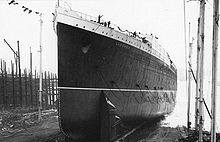 Lusitania was used as a political tool to muster intervention. The British government desperately hoped for assistance from the United States.
Lusitania was used as a political tool to muster intervention. The British government desperately hoped for assistance from the United States.
The Lusitania was a British passenger ship on its way from New York to Liverpool in 1915. The Americans were told that the ship was sunken because of the ruthless Germans. This was not the whole truth of the matter.
The Germans sank the Lusitania because the ship was carrying munitions and in war time this type of thing is fair game. The passengers were inadequately aware of the risk they were taking aboard the passenger ship; however, there was a piece in the newspaper warning passengers not to take the cruise.
“On May 7, 1915, SM U-20 sank the liner RMS Lusitania with a single torpedo hit. The sinking claimed 1,198 lives, 128 of them American civilians.” In the vicinity of the Old Head of Kinsale, near Kinsale, County Cork, Ireland, the Lusitania sank in eighteen minutes.
This was the catalyst Churchill needed. The Americans would enter the war a couple years later.
It’s been confirmed that the Lusitania was carrying ammunition for the allies to use against the Germans. Germany had declared the seas around the UK to be a war-zone. It may not be widely understood that the British knew the location of the German U-boats. This is controversial for the Brits and the Americans. It’s believed that President Wilson and Winston Churchill both had foreknowledge of the circumstances surrounding the Lusitania incident.
For more information, please pick up a copy of Colin Simpson’s book, called “The Lusitania.”
The First World War To Be Fought With Oil And This Would Define The Future
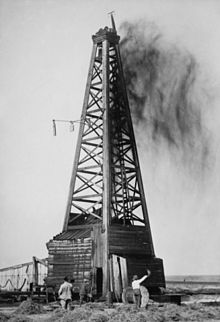 The role that machines and oil played in the Great War was enormous. This was a terrible war and the largest fought since the the Battle of Waterloo in 1815. The impact was much greater than any of the leaders anticipated. The Great War proved to be disastrous for even the winners, and in the ashes of the aftermath, the European Empire would struggle to fully recover, if it ever did.
The role that machines and oil played in the Great War was enormous. This was a terrible war and the largest fought since the the Battle of Waterloo in 1815. The impact was much greater than any of the leaders anticipated. The Great War proved to be disastrous for even the winners, and in the ashes of the aftermath, the European Empire would struggle to fully recover, if it ever did.
The famous quote by Sir Edward Grey on the eve of the war: “The lamps are going out all over Europe, we shall not see them lit again in our life-time.”
Until now, all wars had been fought with horses. The combination of technology and machinery were bound to be determinants in all future wars.
The author of “The Prize” summed it up rather sharply: “It was a war that was fought between man and machines. And these machines were powered by oil—just as Admiral Fisher and Winston Churchill had foreseen, but to a much greater extent than even they or any other leader had expected.”
He also points out that the internal combustion engine was critical in winning wars. “What the first world war established was the strategic significance of oil, that oil, access to oil, possession of oil, the ability to use oil, would be a critical element in national power. And that was one of the lasting lessons of the first world war.”
And this prophetic theme will probably dominate the 21st century just as it did the 20th century.
Timeline
Bulgaria…..signs declaration of independence on Oct. 5, 1908
Bosnian Crisis….the annexation of Bosnia on Oct. 6, 1908
First Balkan War…..Bulgaria captures Adrianople, 1912 through 1913
Second Balkan War…..Bulgaria invades Serbia in June 1913 and loses
Revenue Act…..the income tax bill passed on October 3, 1913
Serbian Concordat…..Concordat signed on June 24, 1914
Assassination….. Archduke Franz Ferdinand dies on June 28, 1914
Austria-Hungary…..declares war on Serbia July 28, 1914
Mobilization…..Russia and Germany both mobilize on July 30, 1914
Germany…..declares war on Russia on August 1, 1914
Great Britain…..declares war on Germany on August 4, 1914
Federal Reserve Bank…..open on Nov 16, 1914
Armenian Genocide…..the Turks start genocide on April 24, 1915
Gallipoli….the Australians and New Zealanders land on April 25, 1915
Lusitania Sinking….. the Lusitania is hit by a torpedo on May 7, 1915
Zimmermann Telegram…..Arthur Zimmermann on January 16, 1917
America…..declares war on Germany April 6, 1917
Germany…..agrees to armistice on November 11, 1918, fighting ends
Treaty of Versailles….. signed June 28, 1919
League of Nations…..held first meeting on January 16, 1920
Analysis: Reflections Of The Great War A Century Later
World War I, or the Great War as it is called by some, began on July 28, 1914 and lasted until November 11, 1918.
“The unprecedented casualty level: eight and a half million soldiers killed, an estimated 21 million wounded, and approximately 10 million civilian deaths.” The French suffered the most.
This horrific aspect of war should be stressed in American schools, especially when students are asked to decorate the classrooms with patriotic art work.
The world was going to experience a war like no other before it. The glamour of battle would be no more. There was awful suffering and the smell of death at every turn, including images of rats chewing on corpses. At the city of Ypres chemical warfare was introduced. Mankind had never witnessed such atrocities; the soldiers turned black and slowly grasped for air and others stood by watching helplessly, as the gas in their lungs literally drowned them to death.
The battles of Passchendaele, Somme, and Verdun were among the bloodiest in the history of war.
When the war bogged down to a stalemate, new technology filled the military landscape with tanks, automobiles, aircraft, and frightening technology that was beyond imagination. Industrial growth created abundance of weapons, while starvation and disease claimed victims everywhere. For the first time in history, bombs flew through the air and wiped out innocent women and little children.
Discussions and debates have focused on issues such as who started the war. Others have asked if the war was inevitable. The Great War did change the way war is viewed. To think of the devastation, the loss of valuable life, and the overall destruction of property makes one question the direction of humanity. Is war always necessary and are the consequences worth it?
In the end, Germany was defeated and humiliated. Shall we dare suggest of genocide prior to WWII?
I have placed my death-head formation in readiness – for the present only in the East – with orders to them to send to death mercilessly and without compassion, men, women, and children of Polish derivation and language. Only thus shall we gain the living space (Lebensraum) which we need. Who, after all, speaks to-day of the annihilation of the Armenians? — Adolf Hitler (August 22, 1939, The Obersalzberg Speech)
Sources And Suggested Scholarly Reading (Listed in no particular sequence)
1. Lawrence in Arabia: War, Deceit, Imperial Folly and the Making of the Modern Middle East — by Scott Anderson
2. The Sleepwalkers: How Europe Went to War in 1914 — Christopher Clark
3. The Genesis of the World War an Introduction to the Problem of War Guilt — Harry Elmer Barnes
4. A Century of War: Anglo-American Oil Politics and the New World Order — F. William Engdahl
5. Paris 1919: Six Months That Changed the World — Margaret MacMillan
6. The Guns of August: The Pulitzer Prize-Winning Classic About the Outbreak of World War I — Barbara W. Tuchman
7. Catastrophe 1914: Europe Goes to War — by Max Hastings
8. The Assassination of the Archduke: Sarajevo 1914 and the Romance That Changed the World — Greg King and Sue Woolmans
9. July 1914: Countdown to War — Sean McMeekin
10. The National Question in Yugoslavia: Origins, History, Politics — Ivo Banac
11. The Fall Of The Dynasties: The Collapse Of The Old Order, 1905-1922 — Edmond Taylor
12. The End of the European Era: 1890 to the Present — Felix Gilbert
13. The Lusitania — Colin Simpson
14. Room 40 : British Naval Intelligence 1914-18 — Patrick Beesly
15. The Prize: The Epic Quest for Oil, Money & Power — Daniel Yergin
16. The Secrets of the Federal Reserve — Eustace Mullins
17. What happened in sarajevo on the 28th 1914? — Answers
18. Gavrilo Princip — Spartacus Educational
19. Sophie Hohenberg — Timeline
20. War Is A Racket — Smedley Butler
21. Archduke Franz Ferdinand of Austria — Wikipedia
22. Assassination — Wikipedia
23. Vidovdan — Wikipedia
24. World War I — Wikipedia
25. Gavrilo Princip — Wikipedia
26. Young Bosnia — Wikipedia
27. Treaty of Berlin — Wikipedia
28. Austria-Hungary — Wikipedia
29. Treaty of San Stefano — Wikipedia
30. Great Powers — Wikipedia
31 House of Habsburg — Wikipedia
32. Balkan Wars — Wikipedia
33. FN Model 1910 — Wikipedia
34. RMS Lusitania — Wikipedia
35. U-boat — Wikipedia
36. Gräf & Stift — Wikipedia
37. History 5 – Lecture 24 — YouTube
38. War in the Trenches — YouTube
39. Assassination of Franz Ferdinand by Gavrilo Princip — YouTube
40. Lusitania (90s Version Documentary?) – Part One — YouTube
41. Lusitania (90s Version Documentary?) – Part Two — YouTube
42. The Untold Stories of Gallipoli — YouTube
43. World War 1 – The Great War Documentary — YouTube
44. Empires of Oil — YouTube
45. Religious identity in the Balkans — YouTube
46. Are The Serbs Being Targeted? — YouTube
47. National Identity in Post-Dayton Bosnia and Herzegovina — YouTube
48. Armenians exterminated by Turks WW1 (Genocide) — YouTube
49. The Treaty of Versailles — YouTube
Image Sources: Wikipedia


Los delincuentes han copiado el método del bumping, a través de
el que se abrían puertas con la sencilla y hábil modificación del bombillo.
Hello to every single one, it’s genuinely a good for me to pay
a visit this web page, it contains priceless Information.
Thanks for the marvelous posting! I genuinely enjoyed reading it, you can be a
great author. I will remember to bookmark your blog and will often come back very soon.
I want to encourage that you continue your great work, have a nice weekend!